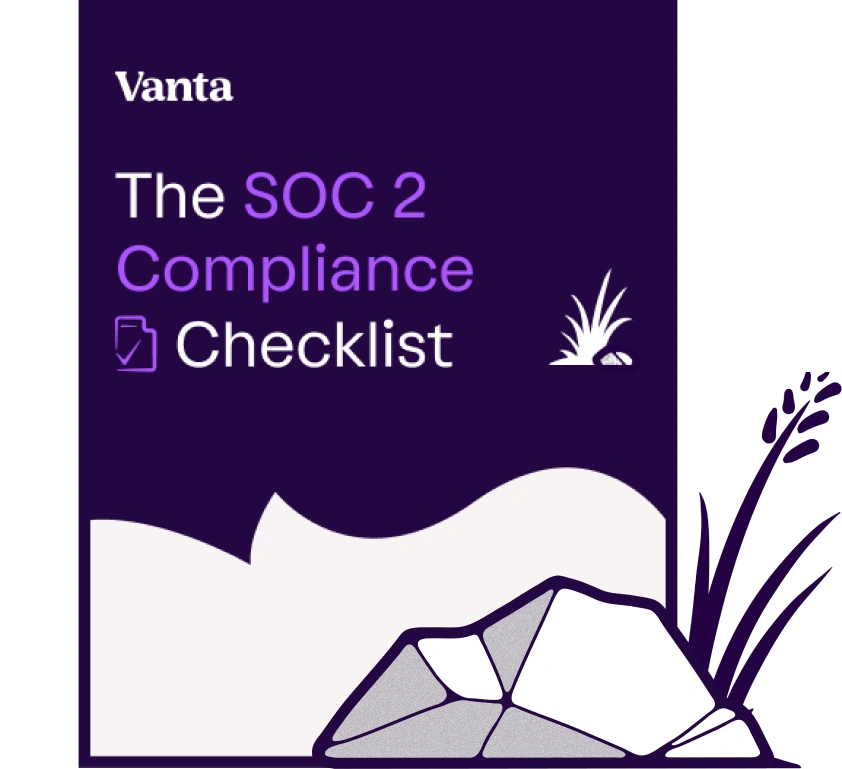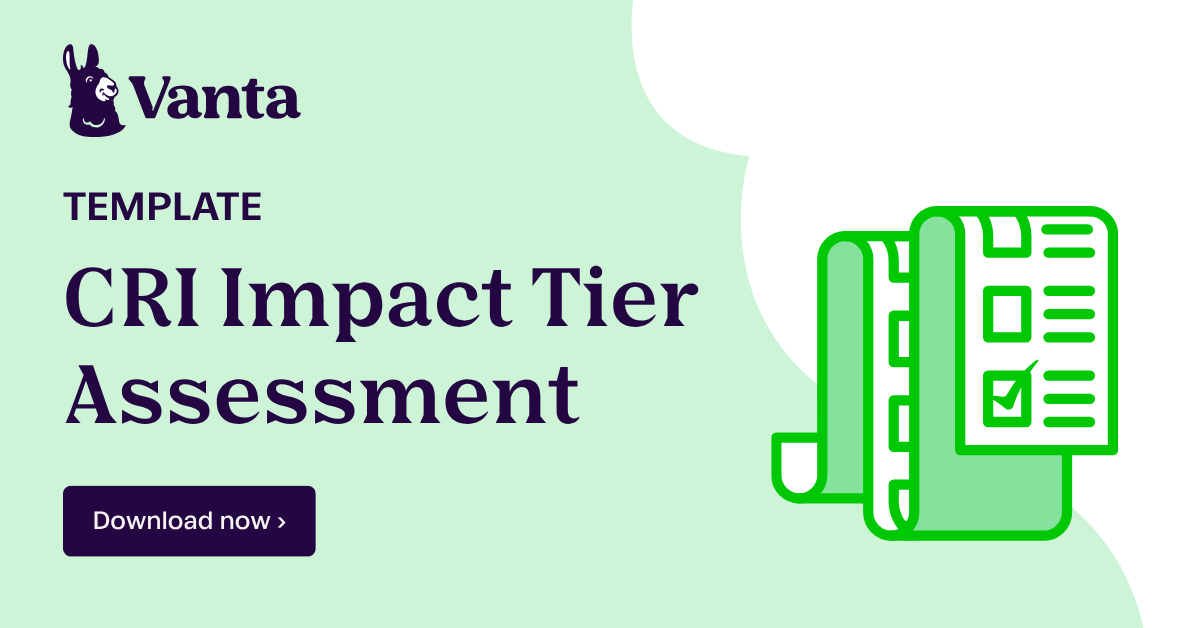Share this article

Lessons for founders from Frameworks for Growth season 1
Accelerating security solutions for small businesses Tagore offers strategic services to small businesses. | A partnership that can scale Tagore prioritized finding a managed compliance partner with an established product, dedicated support team, and rapid release rate. | Standing out from competitors Tagore's partnership with Vanta enhances its strategic focus and deepens client value, creating differentiation in a competitive market. |
AI is rewriting the startup playbook. Today’s founders must juggle faster tech cycles and rising investor expectations around AI with age-old challenges such as finding product-market fit.
Founders need more than grit and luck—they need frameworks that make growth repeatable and resilient.
In our first season of Frameworks for Growth, Vanta co-founder and CEO Christina Cacioppo sits down with the builders and investors behind today’s fastest-growing startups to explore how they’ve scaled their businesses—the wins, the missteps, and the lessons learned along the way.
Check out the full interview series on YouTube or read on for key takeaways from each episode.
Garry Tan on why the next unicorns are built by AI
Garry Tan, President and CEO of Y Combinator, joined Christina to discuss finding product-market fit in the age of AI, when an idea is worth pursuing, and what it really means to operate in “founder mode.”
Here are some of Garry’s key takeaways for founders:
- Product-market fit depends on customer empathy, not technical brilliance: Vibe coding is now table stakes, which means success isn’t limited by technical skill. Startups fail when they build something no one wants. Founders must deeply understand their customers.
- AI is the foundation, not a feature: AI should shape the architecture, user experience, and business model from day one. Startups that approach AI as infrastructure will have a structural advantage over incumbents trying to retrofit it into legacy systems.
- With “intelligence on tap” from AI, agency and taste are crucial: Founders who lean into these strengths can better guide AI tools toward meaningful outcomes, set their companies apart, and build moats around quality and vision rather than raw access to technology.
“Agency and taste are super important—and humans are going to be a really irreplaceable piece of that.”
Hear what Garry has to say about what YC looks for today, vibe coding, and whether we need more billionaires. Watch the full conversation here.
Daniela Amodei on hiring 10x AI engineers
Anthropic’s President and Co-founder, Daniela Amodei, chatted with Christina about what it takes to build both a mission-driven company and a cutting-edge AI research lab. The pair dug into intentional hiring, scaling responsibly in the AI age, and what it means to build (and maintain) trust while working on tech like Claude.
Here are some key lessons for founders from Daniela:
- Culture is a founder’s most valuable currency: Investing in defining and reinforcing values early attracts the right kind of hires and ensures cultural alignment in early employees.
- Hire for intellectual honesty, not just raw talent: In frontier industries, especially, hiring people who can engage in uncomfortable but constructive conversations is key to building resilient teams.
- Values must be specific and actionable: Founders should be able to provide concrete examples of how each company value impacts daily choices.
“If your values are not creating tension, they’re probably too bland.”
Watch Daniela’s full conversation to dig into the loop between research breakthroughs and real-world impact, moving fast while thinking deeply, and common misconceptions about the future of AI.
Amjad Masad on crossing $100M ARR and building the future of code
During his conversation with Christina, Vanta customer and Replit CEO Amjad Masad explains how persistent ideas can evolve into breakout products, as well as how founders can stay scrappy while scaling.
Here are some lessons from Amjad:
- Seek pain to grow: One of Replit’s values is to seek pain—the idea being that confronting pain and discomfort leads to growth, while delaying pain compounds it. Founders should lean into hard choices early—whether that’s layoffs, pivots, or tough conversations—instead of deferring them.
- Persistence turns visions into products: Replit began as an idea in 2008 and only broke through years later with the ability to run Python in the browser. Persistence can turn long shots into successes—when timing aligns.
- Not every rule of company-building applies: Every rule on building and running a company can be broken—as long as you’ve thought things through critically.
“Just following every piece of advice is bad. Just breaking everything for no reason is bad. Try to think through things, continue to tinker, continue to change things—and that's how you learn.”
Hear more from Amjad about navigating skepticism, his AI manifesto, and building community.
Bret Taylor on selling to enterprise companies as an AI startup
Christina sat down with Vanta customer Bret Taylor, Co-founder of Sierra and former Salesforce co-CEO, to discuss the evolution of tech, what it takes to launch successful AI startups today, and cultural lessons from companies like Google and Facebook.
Bret shared several lessons from his extensive tech background, including:
- Build genuine customer obsession into your DNA: Rather than focusing on technical milestones, customer obsession should look like holding yourself accountable for truly understanding what customers are trying to achieve, and then aligning the whole company toward that.
- Prioritize operators with self-awareness when building a board: Build a complementary board by prioritizing operators with self-awareness and recent operating experience. Screen for motivation so you get context-aware guidance.
- Be intentional about your go-to-market model: Match product value and customer segment to the right motion (PLG for SMB, direct sales for enterprise) while grounding decisions in contract size, pricing, and sales capacity math.
“Entrepreneurs are not thinking critically enough about their go-to-market motion and how that impacts what product they're building, how they price and package it—and all of those are very connected.”
Check out the full episode if you’d like to hear about the $400 invoice that led Bret to learn code, how AI is still in the Yahoo Directory phase, and why sales is no longer just steak dinners and golf.
Steffen Tjerrild on becoming one of Europe’s fastest-growing AI companies
In the last episode of the season, Steffen Tjerrild, Co-founder and COO/CFO of Synthesia and Vanta customer, talks with Christina about the future of AI-generated video and how Synthesia built category-defining tech.
His advice to founders includes:
- Sequence your focus—utility first, novelty later: It’s easy to get carried away with future plans. Founders should double down on what provides real value today, and only expand once customer use cases are proven.
- Customer service can accelerate adoption and learning: Not everyone who uses your tool will be a tech native. Even if your product feels intuitive to you, a lightweight services layer—onboarding, templates, integration help—can shorten time-to-value and ensure early customer success.
- Prove that you’re “all in”: Steffen argues that founders should exhaust their own resources first. For investors and employees, that level of personal skin in the game signals you’re willing to endure the hardship required to build something enduring.
“Showing that you are all in—you quit your job, you've spent all your money, you've gone to the edge—that shows commitment, that you have the grit for the hardship that it takes.”
Watch the full episode to hear Steffen’s thoughts on building a mission-driven company, AI ethics and content control, building in Europe, what to look for in angel investing, and more.
Build a framework for trust with Vanta
Vanta helps founders establish a security framework built to scale, so you can focus on building. Want to learn how Vanta can help you build trust? Sign up for a demo.





FEATURED VANTA RESOURCE
The ultimate guide to scaling your compliance program
Learn how to scale, manage, and optimize alongside your business goals.



















.png)
.png)
.png)






.svg)
.svg)


